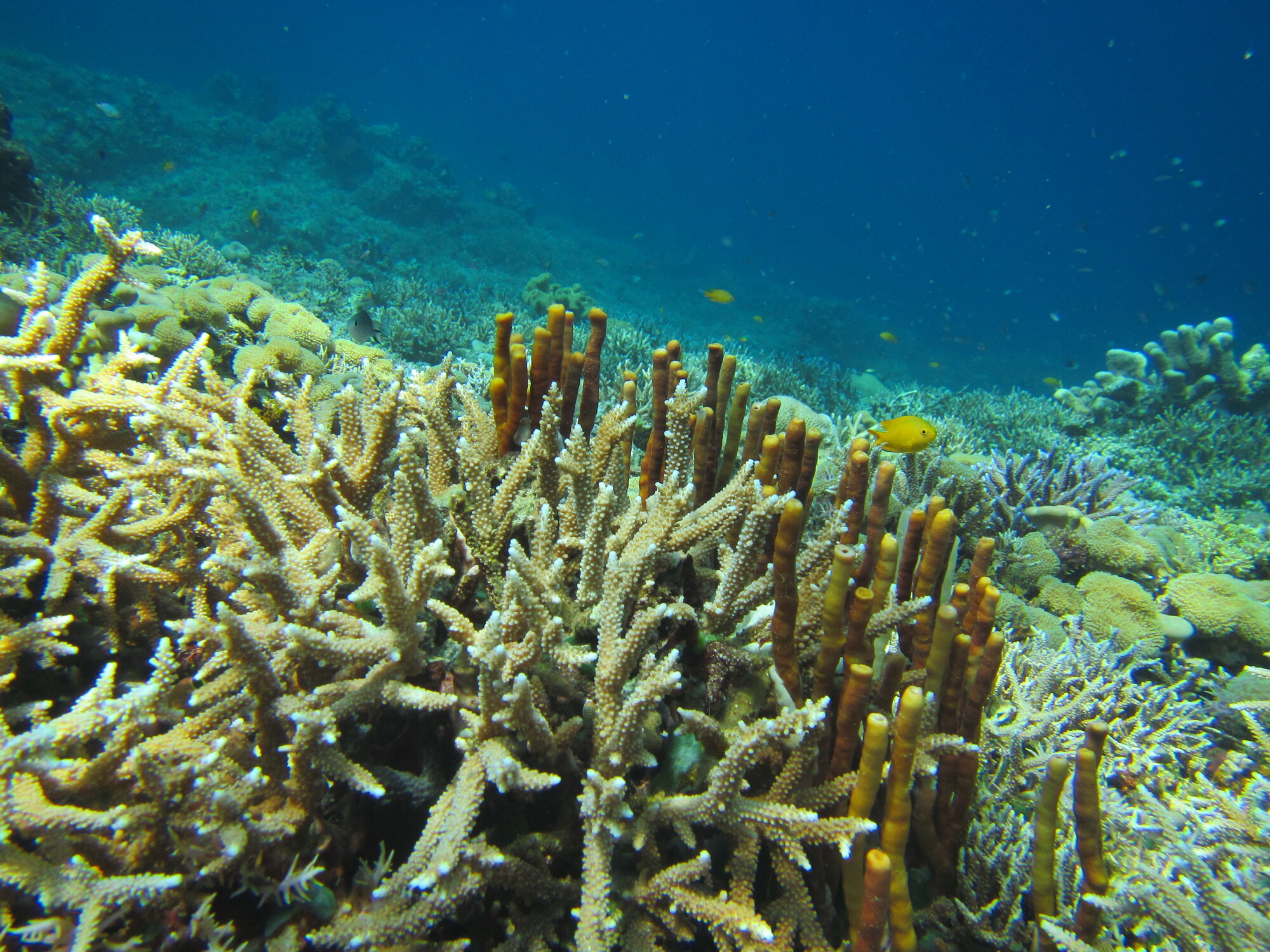CORDAP has funded a total of $18 million USD to 14 projects working across 20 countries. The winners of this inaugural funding opportunity are fully dedicated to saving corals and have proposed a range of ground-breaking ideas to restore corals and reefs, which have suffered devastating degradation due to ocean warming, acidification and pollution.
CORDAP is funding a future for corals
The winning proposals are all based on dedicated partnerships between researchers in the Global North and Global South. Since most coastal reefs are located in developing nations, it’s crucial that Global South citizens are involved in efforts to save corals and coral reefs. In fact, 60% of the countries involved in CORDAP’s winning proposals are low and middle-income and the majority of the lead applicants are female (9 out of 14 lead applicants).
- Rebecca Albright at The California Academy of Sciences in partnership with Roatán Marine Park (RMP), will construct the first coral rearing lab in Honduras, which will serve as a training centre for coral husbandry and assisted sexual reproduction in the region.
- Valeria Pizarro, a Colombian national based at the Perry Institute, is directly confronting a major existential threat to coral reefs in the Caribbean: stony coral tissue loss disease (SCTLD). This highly lethal coral disease was first reported off the coast of Florida in 2014 and has since spread rapidly throughout the Caribbean, its cause still unknown. Dr Pizarro is developing a probiotic which can improve corals’ immune responses, to the point that they may not only survive this marine pandemic, but even thrive, representing a new frontier in marine medicine.
- Coralku in Malaysia aims to change the way coral restoration practitioners select the corals to propagate in nurseries. The current use of ‘corals of opportunity’, essentially broken fragments of corals from the seabed, is at best a ‘blind guess.’ Just as surgeons will only transplant a healthy organ, a new series of pre-screening tests will enable the scientific community to find the most resilient source material when it comes to adapting, transplanting and restoring degraded reefs.
- Rita Rachmawati, in Jakarta and Professor Michael Sweet of the University of Derby (UK), will build a new lab in Indonesia to select and breed rare stony corals which are popular in the ornamental coral trade (those currently unsustainably harvested from reefs and sold to grand hotels and private collectors). Professor Sweet’s Coral Spawning Lab (www.coralspawninglab.org) specializes in reproducing corals ex situ. To date they have spawned over 45 species including some of these high value ornamental species. In addition to supplying the aquarium trade, the same corals will be grown for reef restoration purposes, effectively providing a circular economy model whereby business funds conservation.
- Nicole Fogarty of the University of North Carolina, Wilmington (USA) leads an interdisciplinary team, including researchers from University of the Philippines, that will use cutting-edge genetic engineering technologies, such as whole-genome sequencing and CRISPR, to identify and insert specific genes into corals in an effort to make them more tolerant of the rising ocean temperatures, one of the major causes of coral reef bleaching and mortality.
- Dr Peter Harrison is an Australian working in the Maldives, where he is training a talented team of local marine scientists and conservationists (include a champion female surfer) in AI thermal mapping and use of a robotic submersible to track progress of coral restoration.
“CORDAP was set up because accelerating research and innovation is our chance to save corals. The window for protecting these ecosystems is rapidly closing. However, the awardees of the inaugural CORDAP funding have shown that there is still hope,” said Carlos Duarte, a distinguished Professor at King Abdullah University of Science and Technology (KAUST) and Executive Director of CORDAP.
“It’s a shame that in the scientific community, we see the same faces at conferences, time and time again, because our research partners from the global south cannot afford to attend. The system excludes them – and their solutions – from being properly heard at the negotiating table,” he continued.
Professor Carlos Duarte is a Spanish marine biologist and Distinguished Professor at KAUST University. Duarte’s research team first discovered that coastal habitats are the most important carbon sinks in the biosphere, sequestering about 10 times more carbon per hectare than tropical forests. He also found that biodiversity losses in the ocean are less pronounced than on land, making Duarte a leading voice in ‘ocean optimism’ circles. His ground-breaking 2020 study, “Rebuilding Marine Life” published here in Nature argues that saving ocean life within one generation is achievable.
Find out more about all CAP 2022 winners here.

